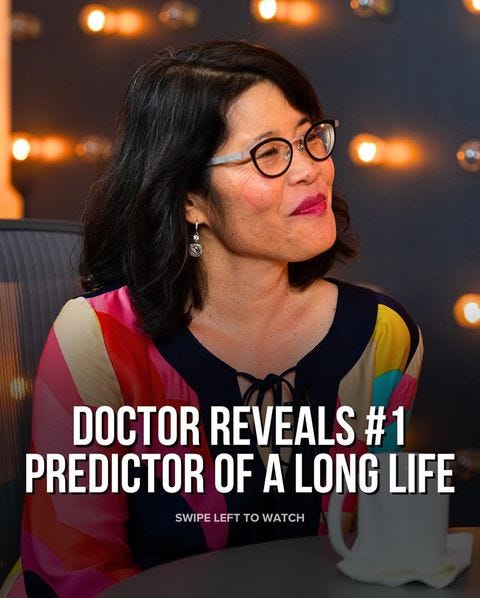“What a platform! Ladies, when you use a public restroom, sit down. If you sit, we can all sit. Stop peeing on the seat.” In 2018, Alex Borstein accepted an Emmy for best supporting actress in The Marvelous Mrs. Maisel and announced the solution to the pee-on-the-seat problem in women’s public restrooms. Her words came to mind as I shuffled between public restrooms at airports and found myself nodding in agreement with her solution. It checked the box of the philosophical idea that “the solution is in the problem.”
A friend, a psychiatrist who deals with mental well-being, sought my input on social solutions to the $406B annual societal cost of isolation reported in Cigna’s 2021 “Loneliness and the American Workplace.”
The Three Cs of Disconnection I sent for her talk on declining mental health and social connections are as follows:
Culture of Convenience: By relying on ourselves, we reduce opportunities for others to meet our needs and build connection. Technology enables self-service, potentially causing disconnection. We might use Uber Eats instead of cooking for a friend, or Lyft instead of driving them to the airport. Single or not, 57% of Americans report eating all meals alone. “Breaking bread” is a human tradition for connection, yet we eat alone at our desks or at home. People need people and we must be careful not to let our conveniences replace connection opportunities.
Culture of Control — We've replaced traditional accountability relationships with paid professionals, at times with conflicting interests, under the guise of setting boundaries. We outsource conversations with friends, aunties, parents and others to paid individuals who only step out of line with our permission, for fear of being seen beyond our online persona. The rise of coaches, doulas, therapists, etc., underscores our reliance on transactional relationships for relational support.
Capitalistic Distraction - I complained to my coach about needing 20 extra hours a week for home and work. We couldn't account for 23 hours in my 168-hour week. Later, I checked my screen time and found almost 20 hours lost to social media. Whether distracted by news, social media, or hyper-productivity, our fundamental need for touch and ‘real’ talk aren’t met. We aren’t given time and space to be known and seen.
In recent decades, we’ve attempted to solve our connection problems by going online, adding a new variable to the problem instead of looking for the solution within. We solved an awareness problem instead of a connection problem, accelerating our capacity for copious amount of information of what others are doing, events happening around the world, news stories, even Space pursuits, yet drove up an unsustainable and unprecedented isolation from others. When we add new variables to solve the problems, at times, we create new problems.
The U.S. Surgeon General’s Epidemic of Loneliness and Isolation report urges action from every facet of society.
“Loneliness is far more than just a bad feeling—it harms both individual and societal health. It is associated with a greater risk of cardiovascular disease, dementia, stroke, depression, anxiety, and premature death. The mortality impact of being socially disconnected is similar to that caused by smoking up to 15 cigarettes a day, and even greater than that associated with obesity and physical inactivity…It will take all of us—individuals and families, schools and workplaces, health care and public health systems, technology companies, governments, faith organizations, and communities—working together to destigmatize loneliness and change our cultural and policy response to it…Our individual relationships are an untapped resource—a source of healing hiding in plain sight…Loneliness and isolation represent profound threats to our health and well-being. But we have the power to respond…Our future depends on what we do today.”
Dr. Vivek H. Murthy
19th and 21st Surgeon General of the United States
Embarrassed and a bit ashamed, I sent this text to a friend about my own loneliness. I hold spaces for people to unburden and be seen, yet here I am stru-gg-ling!
As a woman of faith, I was reminded that isolation and shame are not of God. We are made for community. After I ‘tapped to call-back,’ I felt my spirits lifted. My friend shared this emotional Simon Sinek link about his 8-minute text request to ‘hold space’ when he’s in need of connection. “I tell you: ask, and you shall receive; seek, and you shall find; knock, and the door shall be opened to you.” Luke 11: 9-13.
Help must be sought.
When Alex Borstein told women to sit on the toilet, her solution fully solved the pee-on-the-seat problem without additional intervention. The best solutions come from the problem itself. Maybe we need to be brave enough to ask for connection and allow ourselves to be needed or to be served.
If you’re the 1 in 2 people who experience loneliness regularly and want better connections, consider the following:
Join a community group. We're launching our community groups this spring and recruiting leaders. Let us know if you’d like to lead or join a group.
Belong to third spaces like Korédé House, local libraries, gyms, or community centers.
Send a text to someone you trust that says, "Do you have 8 minutes?"
Shift your state with a walk or a shower.
Do something for someone — be needed. Popcorn and Tea is a reader-supported publication. To receive new posts and support my work, consider becoming a free or paid subscriber.
click to watch:
Sit down to pee and call a friend.
Ronke






